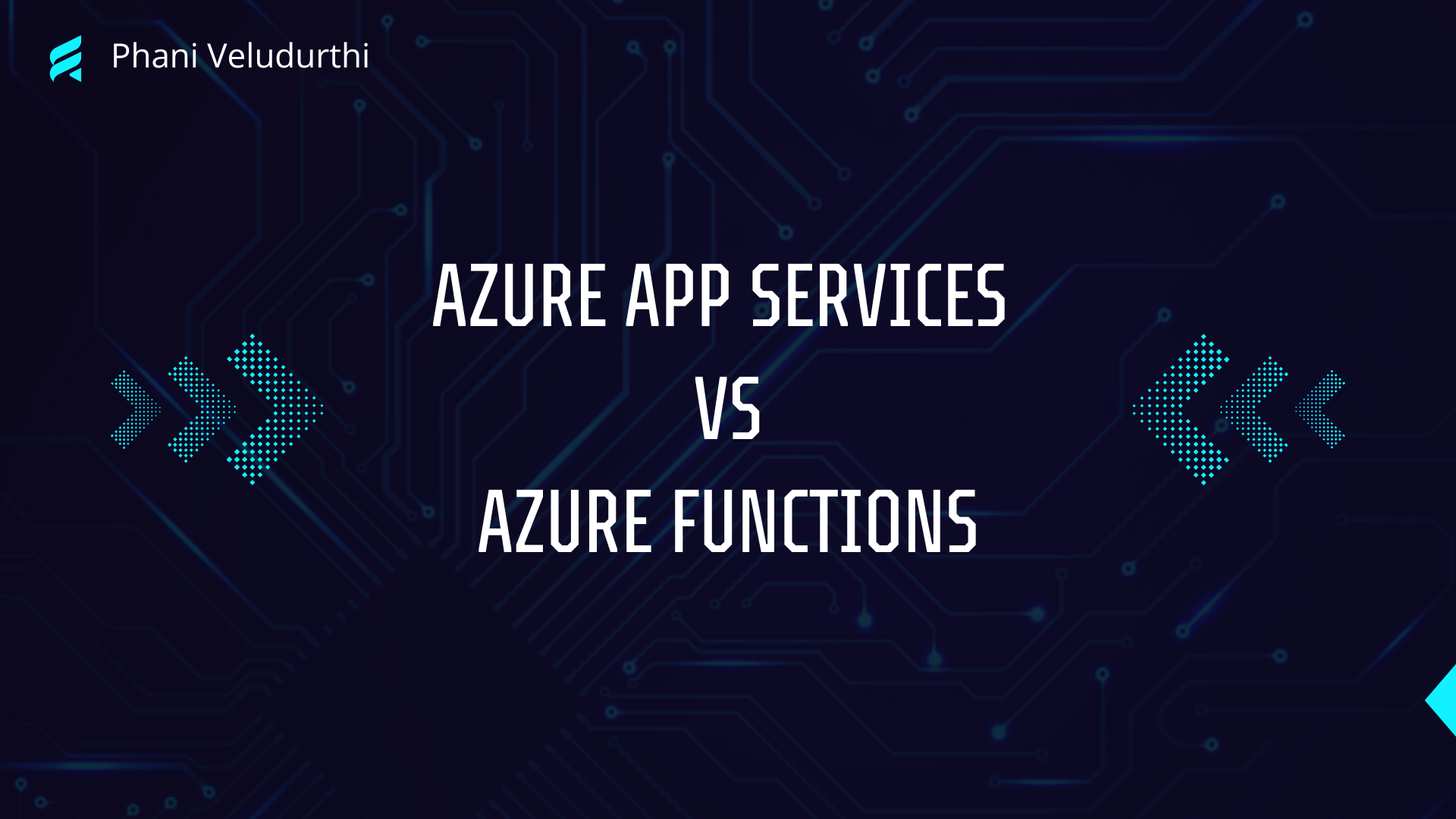· Phani Veludurthi · Azure · 3 min read
Which Azure Compute Service to Choose: App Service or Functions?
In the world of cloud computing, choosing the right hosting platform for your applications is crucial.

In the world of cloud computing, choosing the right hosting platform for your applications is crucial. Microsoft Azure offers two popular options: Azure App Service and Azure Functions. While both services allow you to run applications in the cloud, they serve different purposes and scenarios. Let’s dive deep into their differences to help you make an informed decision.
Azure App Service: The Full-Featured Web Application Platform
What is Azure App Service?
Azure App Service is a fully managed Platform-as-a-Service (PaaS) offering that enables you to build, deploy, and scale web applications. It supports multiple programming languages and frameworks, including .NET, Java, Node.js, Python, and PHP.
Key Features
Continuous Deployment: Seamless integration with Git, Azure DevOps, and other source control systems
Auto-scaling: Ability to scale applications horizontally and vertically based on demand
Built-in Authentication: Easy integration with various identity providers
Virtual Network Integration: Secure access to resources in your virtual network
SSL/TLS Support: Built-in security and custom domain support
Deployment Slots: Testing in staging environments before production deployment
Best For
Traditional web applications
Content management systems
E-commerce platforms
REST APIs
Long-running processes
Applications requiring consistent hosting
Azure Functions: Serverless Computing at Its Best
What is Azure Functions?
Azure Functions is a serverless compute service that enables you to run code on-demand without managing infrastructure. It follows an event-driven approach where code execution is triggered by events.
Key Features
Pay-per-execution: Only pay for the actual compute time used
Automatic scaling: Scales based on demand without configuration
Wide range of triggers: HTTP, Timer, Azure Storage, Service Bus, and more
Stateless by design: Perfect for microservices architecture
Multiple language support: C#, JavaScript, Python, Java, and more
Bindings: Easy integration with other Azure services
Best For
Microservices
Real-time data processing
Scheduled tasks
IoT data processing
Backend APIs with sporadic usage
Event-driven processing
Making the Right Choice: Comparison Factors
Cost Considerations
App Service: Better for applications with consistent traffic and predictable workloads
Functions: More cost-effective for sporadic workloads with variable traffic
Development Experience
App Service: Familiar for traditional web developers, full application lifecycle
Functions: Requires mindset shift to event-driven architecture, focus on individual functions
Scalability
App Service: Manual or automatic scaling with more control
Functions: Automatic scaling with less control but faster response
Maintenance
App Service: More control over infrastructure, requires more management
Functions: Minimal maintenance, fully managed by Azure
When to Choose Which?
Choose Azure App Service When:
You need a traditional web hosting platform
Your application runs continuously
You require full control over the hosting environment
You need deployment slots for staging
Your application has predictable traffic patterns
Choose Azure Functions When:
You have event-driven processing requirements
Your workload is sporadic or unpredictable
You want to minimize infrastructure management
You need rapid scaling capabilities
You want to pay only for actual usage
You’re building microservices
Conclusion
Both Azure App Service and Azure Functions are powerful platforms with their own strengths. App Service is ideal for traditional web applications requiring full control and consistent hosting, while Functions excel in event-driven scenarios with variable workloads. The choice between them depends on your specific use case, development requirements, and operational needs.
You can even use both services together – hosting your main application in App Service while using Functions for specific background tasks or event processing. This hybrid approach often provides the best of both worlds for complex applications.
Remember, there’s no one-size-fits-all solution. Consider your application’s requirements, traffic patterns, and development team’s expertise when making your choice.



